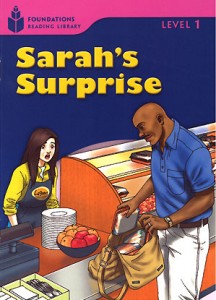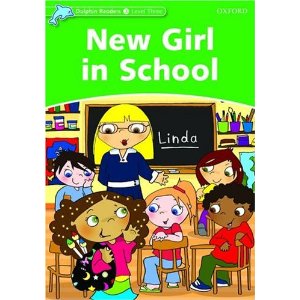business curriculum EFL eikaiwa expectations kids language courses Language learning listening school management very young learners
by sendaiben
4 comments
Teaching English to very young children
The other day I was idly watching one of our teachers working with a couple of our students: two sisters, three and one and a half, who have a play style class with a teacher while their mum has a private lesson with another teacher.
I have to admit, I have always been fairly sceptical about teaching very young children in an EFL context. I’m sure it can’t do any harm, but I hadn’t really seen much benefit either. Basically if the parents were happy to pay us to play with their children for 40 minutes a week, and the children enjoyed it, no problem. It wasn’t something we advertised, but we did consider special requests.
However, about halfway through the class I saw something that completely challenged my assumptions.
The two students rarely speak English, beyond ‘hello’ and ‘see you’ at the beginning and end of the class. Their teacher only uses English with them, and they talk to him in Japanese. The ‘class’ consists of playing together with a variety of toys and objects we have in the classroom. The children decide what to play with, and how they want to play, but we manage that by adding or removing toys.
The teacher was playing with a doll, making it sit down or walk around. At one point, the older sister asked in Japanese “Why is the doll sitting down?”, to which the teacher replied in English “Her legs are tired.” The students then said in Japanese, without missing a beat and completely naturally “Oh, her legs are tired. I see.”
I almost fell off my chair.
The student didn’t have enough to be able to guess that meaning from the context. The teacher did not use any gestures or indicate the doll’s legs. She clearly understood what he said.
I think I’m going to have to rethink the very young learners thing…
Microsoft’s vision of the future
Saw this just now, and it is pretty cool. I think a lot of this stuff is already feasible, it’s just a case of making all the different bits work together smoothly.
What do you think? How soon before we have this kind of functionality in everyday homes and businesses?
curriculum EFL eikaiwa ES extensive reading Foundations Reading Library kids language courses Language learning readers Reading Review reviews school management
by sendaiben
4 comments
Foundations Reading Library
Until now I’ve been focusing on phonics and basic readers. Today I’d like to go to the other extreme and look at a series that bridges the gap between children’s readers and ones aimed at older learners.
The Foundations Reading Library, co-authored by my friend Rob Waring, was revolutionary when it came out. A reader series aimed at teenagers, with minimal headword counts that nevertheless succeeded in being interesting and accessible? I don’t know of any others.
Level one starts with just 50 headwords, so normal junior high school students can have a go at getting through the books. For our students who have come up through phonics and children’s readers, these books are cake.
Foundations Reading Library books are available singly, in level packs, and also in collected anthologies. I only just discovered the latter ones, and they seem fairly promising. They have all the books from that level in one volume, cost about half as much as buying them individually, but have the drawback that you can’t give each book to a different student. The covers also seems flimsier and I’m worried about how well they will last. Still, for some teaching situations, they might be a cheap way to stock up.
You can also get CDs and lesson planners for all the levels, but I don’t have much experience with these.
My thoughts:
1. some of the books are better than others, but overall this series is extremely accessible and interesting for students from elementary school all the way to adults. I also use them with university students and they often come out as the most popular series at low level
2. the gaps between levels are very small, making it easy to progress from one to the next
3. the recurring characters are constant through the series and readers can really get to know them
4. there are nowhere near enough books at each level, and unfortunately there won’t be any new ones coming out
Basically, these books still occupy a fairly unique niche, and they do their job extremely well. I wish there were more of them. Some similar alternatives include the Building Blocks Library, by MPI, and the Page Turners series by Cengage, but they aren’t exactly the same…
Anyone else use Foundations? Did I miss anything?
curriculum Dolphin Readers EFL eikaiwa ES kids language courses Language learning readers Reading Review reviews school management teaching
by sendaiben
2 comments
Dolphin Readers
Dolphin Readers, published by OUP, are strange beasts. I almost didn’t include them in my roundup, because I don’t think they actually are, strictly speaking, readers.
Rather, they are extremely well put-together supplementary workbooks. They consist of five levels (starter and one to four) and there are eight books at each level. The series is available as a set, or individually. There is also a version that includes CDs, although I haven’t heard them so can’t comment.
Each book has two parts, the text and the questions/exercises. You could conceivably try to just use them as readers, but the questions are so well integrated that I think it would be difficult to do that.
My thoughts on Dolphin Readers:
1. the books are very well-designed, printed on thick paper and with attractive artwork
2. they are fairly reasonable: just over 600 yen on Amazon.jp, and less than 20,000 for the full pack of 40
3. the exercises are very well-integrated with the text and practice vocabulary and grammar in a very student-friendly way
4. our students and staff both like the books
Where this series shines is in the classroom. I think the books are designed to be bought by students and used as workbooks in class or for homework. For us, that could get kind of pricey and we already have our students buy a lot of supplementary material, so instead we use the readers in class as a teacher-led exercise where students read the text and answer the questions orally. It’s a great filler activity for those extra three to five minutes that crop up occasionally.
Many people I have talked to prefer the upper levels (three and above), and I agree that they are perhaps more interesting, but I have found all of the books useful. It’s a great resource to have in the classroom.
Any other Dolphin Reader users? I’m very interested in hearing how other people use them too.
To blog or not to blog…
As well as teaching, I am also interested in minimalism, passive income, and social media. The conventional wisdom in blogging/online communities is that it is necessary to have and actively manage an online presence. Write a blog, be active on Facebook, Twitter, and Linkedin: all with the ultimate goal of building a tribe and enhancing your credibility. If all goes well, this will lead to fulfillment and opportunities for professional advancement.
However, does this transfer to the ELT world?
My friend John Wiltshier does not have a blog. Instead he spends his time and energy creating textbooks and presenting to teachers.
Paul Nation does not have a blog, but that has hardly stopped him influencing language teachers all over the world.
Tim Murphey does not have a blog, although you can find his website here.
Scott Thornbury does have a blog, although he doesn’t update it very often (on the blogging scale of things, at least). Barbara Hoskins Sakamoto has a hugely successful blog, although she seems to be focusing on guest posts recently.
So what lesson to draw from all of this? Is blogging (regardless of its intrinsic rewards) something that is worth doing? Or is it, as some of my more pragmatic friends put it, a waste of time?
A lot of the time I feel I should shut down the browser and settle down to some ‘serious’ work: some official publications that I can put on my resume. Right now, in Japan at least, your blog or online presence will probably count for nothing when applying for jobs. Even the most cursory ‘kiyo’ (internal university journal) article would trump years of online writing when applying for a university position.
Thinking about the opportunity cost, the few hours a week I spend on this could probably be better employed elsewhere…
So what do you think? Blogging, from a professional point of view, worth it or not?



